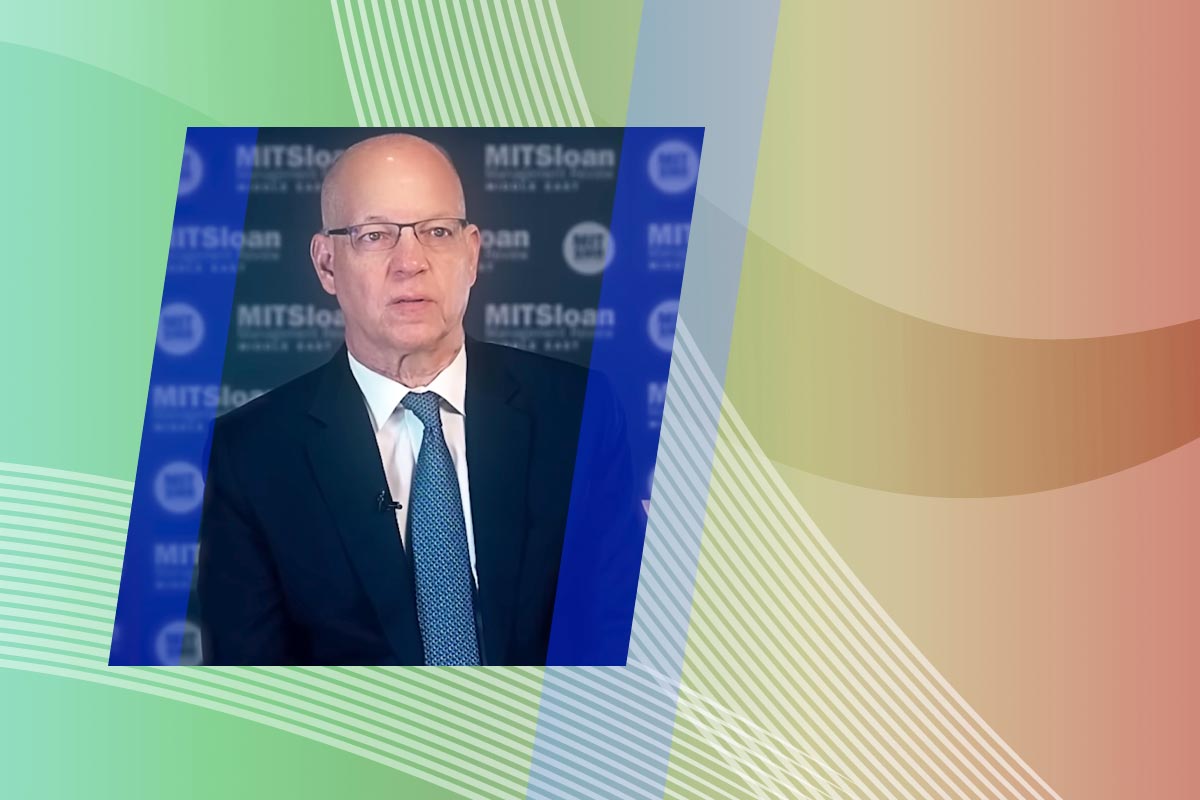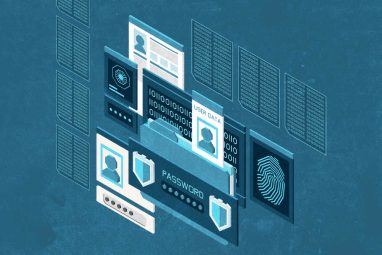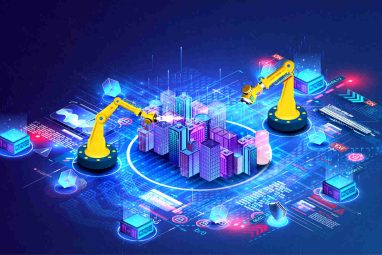Science, Research and Deep Tech are Leading the Wave of Innovation in the Middle East
In an interview with MIT Sloan Management Review Middle East, TII CEO Dr. Ray O. Johnson talks about how R&D in deep tech initiatives significantly impacts our future by solving some of humanity's most complex challenges.
News
- Identity-based Attacks Account for 60% of Leading Cyber Threats, Report Finds
- CERN and Pure Storage Partner to Power Data Innovation in High-Energy Physics
- CyberArk Launches New Machine Identity Security Platform to Protect Cloud Workloads
- Why Cloud Security Is Breaking — And How Leaders Can Fix It
- IBM z17 Mainframe to Power AI Adoption at Scale
- Global GenAI Spending to Hit $644 Billion by 2025, Gartner Projects

[Source photo: Venkat Reddy Marri/MITSMR Middle East]
As new sciences evolve, technologies mature, and customer demands change, deep tech increasingly enables businesses to develop radically new products and processes.
To innovate successfully and stay ahead of competitors, companies invest in a robust research and development (R&D) strategy to yield the critical technology from which they develop new products, services, and business models.
For Dr. Ray O. Johnson, CEO of the Technology Innovation Institute (TII), R&D represents the foundation of the technological advances we enjoy today. “Today, we have brought together all the components of a well-oiled R&D machine – research talent, investors, partnerships with industry and academia, and high-caliber projects.”
“The result boosts the UAE’s credibility as a global R&D hub,” he adds.
Deep-tech companies, like TII, have a strong research base. They create value by developing new solutions, disrupting business models, and advancing the technological frontier. We saw huge breakthroughs in key segments like quantum computing, space tech, generative AI, and much more.
In an interview with MIT Sloan Management Review Middle East, Dr. Ray talks about how R&D in deep tech initiatives significantly impacts our future by solving some of humanity’s most complex challenges. He adds that R&D and technology transformation is sweeping across the healthcare, transportation, energy, food and agriculture, aerospace, and security domains in the UAE.
Excerpts from the interview:
How does investment in R&D contribute to a nation’s economic growth and competitiveness on the global stage?
Research and development represent the foundation of the technological advances we enjoy today. These innovations are the result of decades of investments in R&D. The GPS-based location services that we use in our mobile phone applications stem from the work of space scientists starting in the 1950s. Without such advances in technology, nations’ economic productivity would stagnate.
In the UAE, while economic diversification has been underway for well over two decades, 2020 brought winds of change. Deep tech became a key economic contributor through establishing the Advanced Technology Research Council (ATRC) and later its entities – Technology Innovation Institute (TII), ASPIRE, and VentureOne – working to shape a thriving R&D ecosystem in Abu Dhabi.
The shift led to attracting a talent pool of experts from around the world and incubating the country’s exceptional STEM talent into thriving R&D careers. The UAE’s commitment to its knowledge economy has already paid off.
Today, we have brought together all the components of a well-oiled R&D machine – research talent, investors, partnerships with industry and academia, and high-caliber projects.
The result boosts the UAE’s credibility as a global R&D hub. From AI to space exploration and quantum to directed energy – we have established our credentials as a testbed for the world’s innovators.
Which sectors offer the biggest scope in research?
Deep tech initiatives cannot exist without R&D. Our TII research centers handle areas that will likely have the most significant impact on our future by solving some of humanity’s most complex challenges. In the UAE, R&D and technology transformation are sweeping across the healthcare, transportation, energy, food and agriculture, aerospace, and security domains.
This has become the Year of AI; for the UAE, it is also its Year of Sustainability. Cleantech and climate finance are set to witness the immense impact of R&D with new projects announced in the run-up to COP28.
In the UAE, R&D and technology transformation are sweeping across the healthcare, transportation, energy, food and agriculture, aerospace, and security domains.
What is TII focusing on currently? Tell us about the potential impact.
TII comprises ten research centers dedicated to breakthrough solutions in autonomous robotics, advanced materials, biotechnology, cryptography, directed energy, AI and digital science, propulsion and space, quantum information science, renewable and sustainable energy, and secure systems. Each of these areas holds the potential to disrupt several industries; they were carefully chosen to develop outsized solutions for national priorities and global needs.
Whether it is Unmanned Ground Vehicles (UGVs) that can navigate from point A to point B in GPS-denied environments, electromagnetic compatibility labs that can carry out prequalification tests for electronic interference, or an impact lab that is developing crash-proof advanced materials, or building the first quantum computer in the Arab world – each one of our projects is transformative.
We anticipated that AI would become a game changer earlier than anyone else in the region, and we introduced the world’s first and largest Arabic NLP model, Noor, last year. We followed that up with our Falcon series of home-grown large language models (LLMs) – Falcon 40B and Falcon 180B are both open-source and soared to the No. 1 spot on the leaderboard as soon as they were launched. We are now developing a roadmap. AI’s incredible pace of growth is astonishing.
How can governments and private enterprises collaborate to create an ecosystem of research and scientific thinking?
Governments possess the resources, regulatory authority, and the ability to shape policies that support scientific research, while private enterprises bring innovation and technical expertise. The UAE has managed to strike a synergistic balance between the two thanks to its leadership’s commitment to creating a knowledge-based economy and convening various stakeholders to facilitate this effort.
The Abu Dhabi Economic Vision 2030 is an example of an innovation-led government initiative that focuses on areas including the private sector, knowledge-based economy, transparent regulation, education, values, and culture. It promotes infrastructure projects and collaboration with academic institutions – enabling Abu Dhabi to embrace innovative technologies.
In line with this initiative, the ATRC works relentlessly to position Abu Dhabi and the UAE as a preferred hub for scientific breakthroughs through advanced tech research and crucial global partnerships across geographies.
What is your view on AI’s impact on industries and society?
AI is revolutionizing multiple industries, and it holds transformative potential for society thanks to its ability to analyze vast amounts of data, detect patterns, and make informed decisions. As we have seen, AI has proven that it can address global challenges and contribute to the betterment of humanity, and we are in the early days.
TII’s series of Falcon LLMs can open doors to economic growth and entrepreneurship – helping developers enhance their research capabilities to drive innovation and the commercialization of their ideas into revolutionary industry applications.
AI has proven that it can address global challenges and contribute to the betterment of humanity.
Ultimately, all AI stakeholders must ensure responsible and ethical implementation of this technology to harness its power for good. With regards to our Falcon LLMs, ethics and responsible use of AI are paramount. By open-sourcing our models, we encourage transparency and accountability in AI development – inviting the global community to contribute to its refinement and ensuring that ethical considerations are embedded in its evolution and usage. Together, we can work towards a more equitable, inclusive, and sustainable future.
Are biotechnology and clean energy focus areas too?
At TII, we are harnessing the immense potential of biotechnology to fight disease and hunger. Our Biotechnology Research Center (BRC) is committed to leading in advancing these life-changing solutions while reducing our ecological impact.
Likewise, our Renewable and Sustainable Energy Research Center (RERC) is currently developing innovative clean energy systems focused on improving the efficiency of sustainable energy systems while lowering carbon emissions. The RERC is dedicated to innovation at the frontiers of energy science – prioritizing energy storage, bioenergy, and fuel cells, energy analysis, optimized systems design and modeling, and modernized energy solutions.
How is TII aiding the UAE’s advancement and ability to adapt to rapidly evolving industries?
In recent years, the UAE has diversified and redefined its economy by establishing an R&D ecosystem supporting its rapidly evolving industrial landscape. TII has significantly bolstered these efforts by building intellectual property and creating additional in-country value through critical projects announced in collaboration with our partners in academia and industry.
Key examples include building the national cryptography library, developing variations of a post-quantum cryptography library, launching the region’s first electromagnetic compatibility labs, building the first quantum computer in the Arab world, establishing the first Impact Lab in the region to manufacture transformative advanced materials, and lately, the launch of our open source Falcon LLMs – Falcon 40B, the Middle East’s first, homegrown LLM, and Falcon 180B, the world’s most powerful AI model.
Edited by: Suparna Dutt Dcunha





